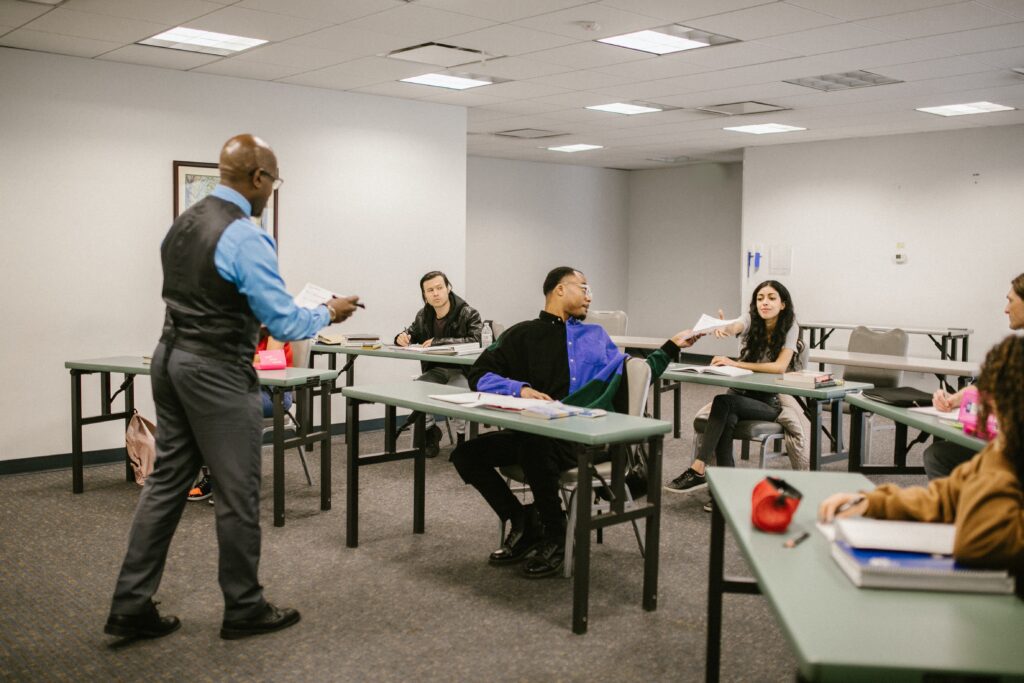By Dr. Erin Bell
Most instructors present their syllabus during a first-week lecture (in person or a recorded video in online courses); others may choose to create a syllabus scavenger hunt or syllabus quiz, allowing students to engage and interact with the document through learner-centered activities. In any case, a syllabus review during any course typically includes the definition and discussion of course outcomes.
Certainly, it is imperative that educators discuss course outcomes with students during these first weeks of the course. It can be particularly effective to have students “teach back” or present the outcomes to their classmates so that instructors can gauge student understanding of the outcomes and help them make connections to their majors as well as the University mission. It is important to review language or terminology that is unfamiliar to students and to explore how outcomes connect to their greater academic plans and goals.
To engage in this important work at the beginning of the semester, educators can plan accordingly prior to week one. Before the semester starts, instructors can map course outcomes to their assignments. As they create new assignments and revamp old ones, instructors can consider how each assignment/assessment connects to course outcomes. Essentially, this work entails reverse engineering courses, starting with the outcomes first and creating assignments and assessments that will help students reach said outcomes.
 Photo by RODNAE Productions: https://www.pexels.com/photo/teacher-giving-the-test-results-to-his-students-7092351/
Photo by RODNAE Productions: https://www.pexels.com/photo/teacher-giving-the-test-results-to-his-students-7092351/
Once the semester is underway, instructors must continue to highlight and discuss course outcomes from week to week. Rather than limiting conversations about course outcomes to the week one syllabus review, educators can integrate reflective assignments throughout the semester to make sure students understand how each component of a course (from readings to projects and formative and summative assessments) will help them meet the course objectives.
Ideas for Reinforcing Outcomes as the Semester Advances
- Include course outcome information in assignment descriptions/directions on Blackboard. Course directions should demonstrate and explain how assignments/assessments lead to proficiency in course outcomes. (Explain how a particular assignment fits within the broader goals of the course).
- Incorporate discussion prompts (either in person or in the online discussion space) that cite course outcomes as a jumping-off point for conversation and allow for a meta-cognitive analysis of student learning in the class.
- Integrate brief reflective assignments (such as a writer’s memo) before and after summative assessments which ask students to discuss how an assignment is connected to a particular outcome or outcomes.
- Include information about outcomes in the course session agendas and/or as you introduce and conclude a unit.
- Incorporate a final, global reflective assignment (such as an essay or narrated presentation) that asks students to explain how well they have met course outcomes. Ask students to provide examples and evidence from their work during the semester that demonstrates their proficiency in outcomes.